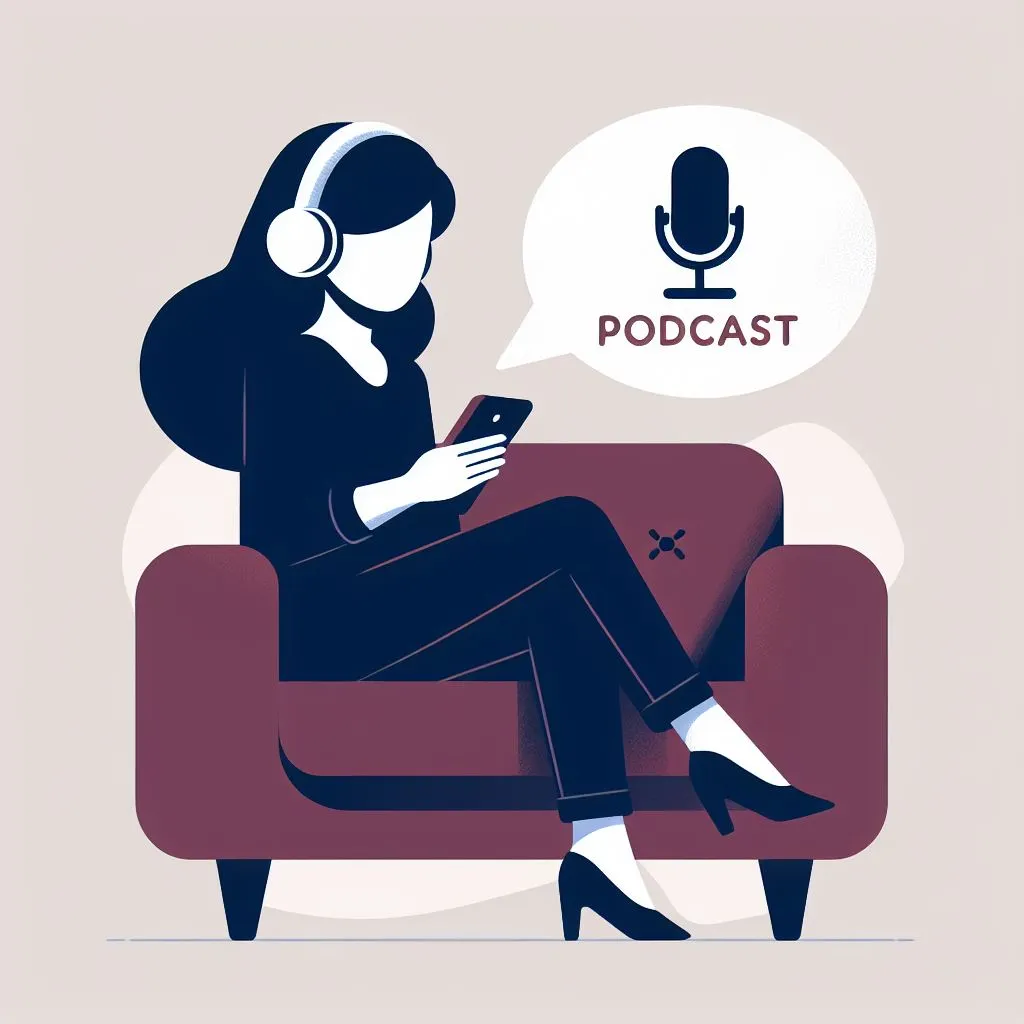

The Best Language Learning Apps for Studying New Vocabulary
Explore the best language apps for mastering new vocabulary and synonyms. Elevate your language skills.
WordUp Team
|
12/26/2023
How Studying a New Language Has Changed
Welcome to an exciting journey of language learning, where we explore the world of vocabulary and synonyms through innovative language learning apps. In this blog post, we will delve into some of the best apps designed to enhance your language skills, focusing on vocabulary expansion and synonym mastery.
Whether you're a language enthusiast, a student, or a professional looking to refine your linguistic prowess, these apps offer a fun and effective way to achieve your goals. Unlocking linguistic proficiency is a thrilling pursuit, and in the digital age, the demand for effective language learning apps is at an all-time high.
Have you ever found yourself typing ‘'another word for' trying to expand your active vocabulary or checking thesaurus to find better synonyms? Then you should take a look into the realm of the 'best language learning apps,' and think of this blog post as your guide to efficient language acquisition.

The Power of Language Learning Apps
In the digital age, studying a new language has been revolutionised by the advent of mobile apps. These applications not only make studying a new language more accessible but also add an element of enjoyment to the process. Up to now studying new vocabulary via the internet was limited to typing “another word for”, however, with AI technology that has come to change.
Most of the best language learning apps that allow you to learn English online use a version of AI in their application. The AI model is trained to be your personal tutor paying attention to your progress and the mistakes that you might make. This allows studying a new language to take a more personalised approach as opposed to the preceding one-size-fits-all method.
As a result, studying a new language has never been easier. Instead of being limited to going to classes to receive feedback, you can now have a personal tutor in your pocket at all times. This has been a great game-changer when it comes to new information. Let's explore how language learning apps can transform the way we acquire and retain new words and synonyms.

Choosing Among the Best Language Learning Apps
In the vast landscape of language learning apps, the key to success lies in choosing the one that aligns with your unique style. Some learning apps, while fun to use, are just a game that pushes you to memorise its pattern to advance in its leaderboard rather than learn. Here's a breakdown of essential criteria to consider when choosing the perfect tool:
Tailored Learning Paths:
A stellar language learning app understands that one size doesn't fit all. Look for platforms that assess your current proficiency and tailor lessons accordingly. Having an adaptive experience ensures you're consistently challenged, striking that perfect balance between comfort and growth.
Vocabulary Focus:
The heart of language proficiency is a robust vocabulary. Opt for apps that prioritise vocabulary building, offering carefully curated words in real-world contexts. It's not just about definitions; it's about understanding how words function in everyday conversations.

Comprehensive Resources
The best apps go beyond mere definitions. Seek those that provide rich content—images, movie clips, news excerpts, and even comparisons with synonyms. Studying becomes more engaging and memorable when it's anchored in real-life examples.
Active Engagement:
Move beyond passive language acquisition with apps that encourage active participation. Look for features like AI-powered conversations or simulated role-play to use your newfound vocabulary in practical situations. What’s more, when you get to use the language you are studying however you like rather than selecting predefined choices, you can receive real feedback.
Topic Diversity:
Languages aren't confined to a single context. Choose apps that offer a diverse range of topics, allowing you to navigate conversations in various settings, from casual daily interactions to specialised professional discussions.
Navigating the landscape of language learning apps can be overwhelming, but WordUp stands out as a beacon of innovation and effectiveness. Unlike other applications, WordUp empowers learners with unprecedented control over their learning journey.

How Such Apps Have Changed How We Learn Each Skill
Apps have shifted the focus from traditional methods to personalised, adaptive learning experiences. WordUp, for instance, tailors its approach to each user's unique journey, recognizing that a one-size-fits-all model is no longer sufficient.
By allowing learners to customise their paths based on personal interests, proficiency levels, and preferred pace, WordUp ensures that education becomes a truly individualised adventure. This personalization fosters a deeper connection with the material, making the process not only effective but also enjoyable.
With these new apps learners engage with language in practical, applicable scenarios. This approach enriches vocabulary with a sense of real-life relevance, empowering learners to express themselves. Language learning is no longer a routine task but a dynamic and engaging journey. This shift can best be seen when it comes to developing writing and conversational skills.

The Shift in Learning Writing Skills
In the not-so-distant past, the process of learning writing skills was predominantly confined to traditional classroom settings and structured educational systems. Learners would be handed textbooks and workbooks, delving into the intricacies of grammar rules, sentence structures, and vocabulary.
Writing assignments were typically limited to essays, reports, and creative writing exercises. Feedback from instructors played a crucial role, but the interactions were limited and sometimes lacked the immediacy needed for effective learning. The process primarily revolved around formal instruction, with little room for personalization to cater to individual learning styles.
Learning applications have changed the process of learning and practising writing skills completely. Today's learners benefit from a more dynamic and personalised approach that extends beyond the traditional classrooms. Interactive online platforms and applications offer a multifaceted experience, incorporating various tools and features.

Multimodal Resources:
Modern writing applications provide learners with a wealth of resources. Instead of relying on written text, learners can access visual aids, audio clips, and interactive exercises. This approach caters to diverse preferences, making the process more engaging and comprehensive.
Unlike what it was with traditional writing assignments, contemporary applications present learners with real-life scenarios and challenges. Users are prompted to apply their writing skills in practical contexts, simulating situations they might encounter in the real world. And most importantly get the feedback that they need right then and there.
Learning applications offer instant feedback on writing assignments, allowing learners to correct and improve in real time. Interactive features, such as collaborative writing exercises with AI and getting reviews, create a more dynamic and social environment.
Perhaps one of the most significant shifts is the accessibility of materials. Writing applications allow learners to access resources anytime, anywhere, breaking down geographical barriers and enabling a more flexible and convenient experience.

The Shift in Developing Conversational Skills
The same can be said for conversational skills. Previously it was primarily done through face-to-face interactions, classroom discussions, and real-life communication scenarios. Traditional methods emphasised verbal communication, role-playing exercises, and group discussions. However, this limited the room for exposure to real-world conversations.
In the present era, conversational skills development has undergone a transformative shift, thanks to the emergence of interactive learning applications. These platforms have revolutionised the way individuals learn to engage in meaningful conversations, introducing a range of features that enhance and diversify the learning process.
Unlike traditional settings where conversational practice was periodic and often limited, modern applications facilitate real-time interactive conversations. Users can engage in dynamic dialogues with AI-driven chat partners, providing immediate responses and fostering an environment that mirrors real-life interactions.

Cultural and Contextual Immersion
Contemporary conversational learning apps go beyond language basics, immersing learners in cultural and contextual scenarios. This immersion allows users to understand and practice language in diverse situations, preparing them for authentic conversations in various social and cultural settings.
The integration of Artificial Intelligence extends to conversational skill development. AI-powered guides provide personalised feedback on pronunciation, intonation, and language usage, helping learners refine their conversational skills with tailored insights.
Traditional role-playing exercises are now enhanced through technology. Learning applications offer scenario-based simulations, enabling users to navigate different conversational contexts and challenges. This approach not only reinforces language skills but also builds confidence in real-world communication.

Anytime, Anywhere, and in Different Forms
The accessibility of conversational materials has significantly increased. Learners can practise conversational skills at their convenience, breaking free from the constraints of specific locations or scheduled sessions. This flexibility accommodates diverse preferences and lifestyles.
Similar to writing skills applications, conversational skill development platforms embrace multimodal resources. Users can engage with audio clips, video content, and interactive exercises, enhancing their understanding of conversational dynamics beyond text-based exercises.
Moreover, these learning apps often incorporate community and social features. Users can participate in forums, discussion groups, and language exchange communities, fostering a sense of belonging and providing additional opportunities for practical conversational practice.
Personalization is a key aspect of contemporary conversational education. Learners can tailor their learning paths based on their proficiency levels, areas of interest, and specific conversational goals. This adaptability ensures that the learning journey aligns with individual needs.

Why WordUp Stands Out:
1. Personalized Learning Paths:
WordUp goes beyond the one-size-fits-all approach. With our app, you have the freedom to customise your learning path. Tailor your experience based on personal interests, proficiency level, and preferred pace. No other app offers this level of personalization.
2. Real-World Context:
Context is key to language acquisition, and WordUp takes this to heart. Our unique approach immerses users in real-world scenarios, ensuring that every word learned is relevant and applicable. It's not just about memorization; it's about practical, usable language skills.
3. Interactive and Engaging:
Say goodbye to mundane studying. WordUp prioritises interactivity, providing a range of engaging features powered by innovative AI. From dynamic quizzes to AI-driven conversations, every interaction is designed to make studying English enjoyable and effective.



